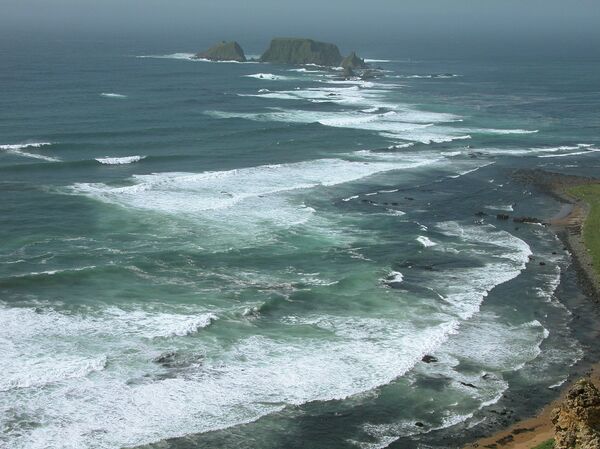"The peace treaty is something that Abe wants to secure; economic cooperation is something that President Vladimir Putin wants to agree on. Both of these issues are now viewed as part of the same package. It is important that the territorial issue has been left aside," Professor Nakamura Itsuro of the Tsukuba University told RIA Novosti.
The dispute over the Kuril Islands that Japan refers to as the Northern Territories and claims as its own has remained unresolved since the end of WWII. Some have suggested that Russia could hand over the islands in exchange for the peace deal and joint projects aimed at boosting the country's economy, but Russian officials have dismissed these ideas.

On Friday, Putin told Bloomberg that "we do not trade territories." The Russian leader added that "concluding a peace treaty with Japan is certainly a key issue." He added that the current round of talks is meant to "search for a solution when neither party would be at a disadvantage, when neither party would perceive itself as conquered or defeated."
The analyst also mentioned that Japan's Ministry of Economy, Trade and Industry (METI) plays a key role in this process. For its part, the country's Ministry of Foreign Affairs could oppose Abe's stance and the emerging framework of bilateral cooperation with Russia.
High-ranking officials in Russia and Japan have not disclosed the details of the cooperation plan that both sides are discussing, but experts say that Japan's new strategy focuses on promoting economic cooperation first, with resolving the territorial dispute not an immediate priority.
This is how Valery Kistanov, head of the Center for Japanese Studies at the Institute of Far Eastern Studies of the Russian Academy of Sciences described Tokyo's new approach to Svobodnaya Pressa: "Here is economic cooperation. We hope that you will appreciate the benefits and as a token of gratitude make concessions and return the territories."
Oleg Kazakov, a senior researcher at the Center for Japanese Studies at the Institute of Far Eastern Studies, does not think that both sides can find common ground at the moment.
"There is an intention to continue dialogue on the peace treaty that is expected to resolve the territorial dispute. But both sides have opposite approaches. Japan does not agree that the Kuril Islands belong to Russia. For its part, Moscow has repeatedly said that it does not trade territories and it's a closed chapter under the existing international treaties."



